D5.3 Case study elaboration, field validation protocols, and equipment calibration
Summary
The most important result of this deliverable is the description and preparation of onsite tests that will be performed at 6 demonstrators in Europe. These demonstration projects are related to new construction, retrofitting, maintenance as well as additionally on the finishing prefab-process at factory level as the interface between finishing prefab activities at factory level and site delivery has been identified as a relevant quality assurance problem.
The 6 defined demonstration projects are related to new construction, retrofitting, maintenance and additionally on the finishing prefab-process at factory level as the interface between finishing prefab activities at factory level and site delivery has been identified as a relevant quality assurance problem.
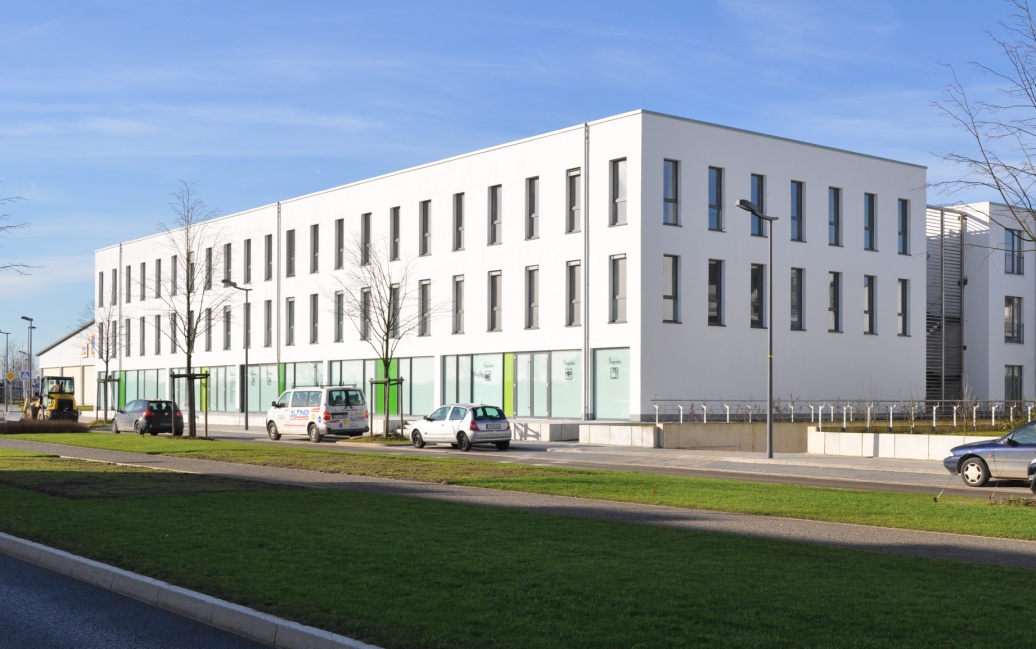
| Demonstrator 1: Health Centre Cologne, D, responsible partner 3L. The Cologne demonstrator is a roof top extension with prefab light-weight elements on an existing building erected in 2012. This project is defined as a hybrid, because an additional new part of a building will be connected structurally with an existing building without retrofitting it. Field demonstration activities will focus on scanning the QR code, geometric check of the ground sill and application of AR.
|
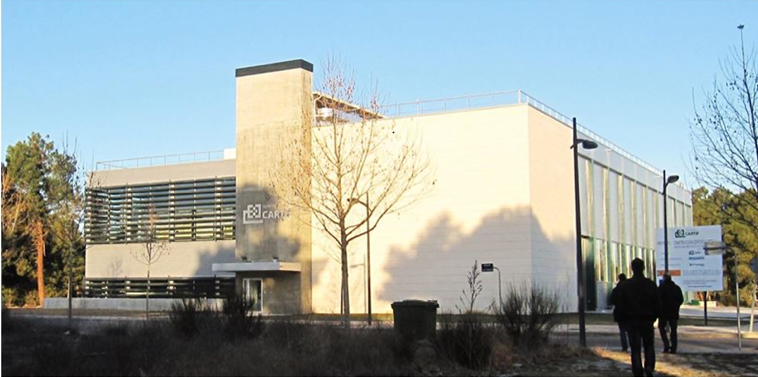
| Demonstrator 2: Cartif-3, E, responsible partner Cartif. Cartif-3 is an existing prefab nearly zero energy research building. It contains large facilities for real scale chemical/industrial prototypes testing and offices. Field demonstration activities will focus on checking of measured values of building components, measurement thermal performance and com-missioning of solar thermal systems related to maintenance demands.
|
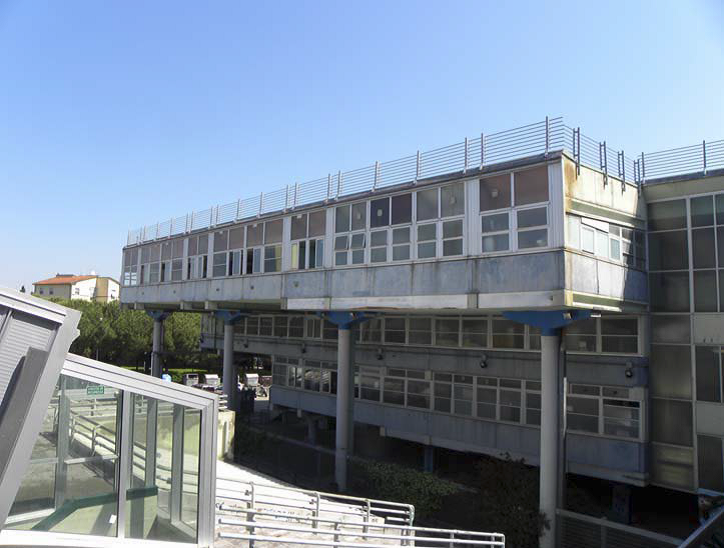
| Demonstrator 3: Concetto Marchesi, I, responsible partner AICE. The Concetto Marchesi, located in the eastern part of Pisa, is a modular school building from 1974 with a modular construction grid, a precast structure and made of prefab components. The building is in poor maintenance condition and therefore deep renovation processes will be performed. Field demonstration activities will focus on geometrical consistency, testing of thermal bridges and checking of the connections between existing building and additions.
|
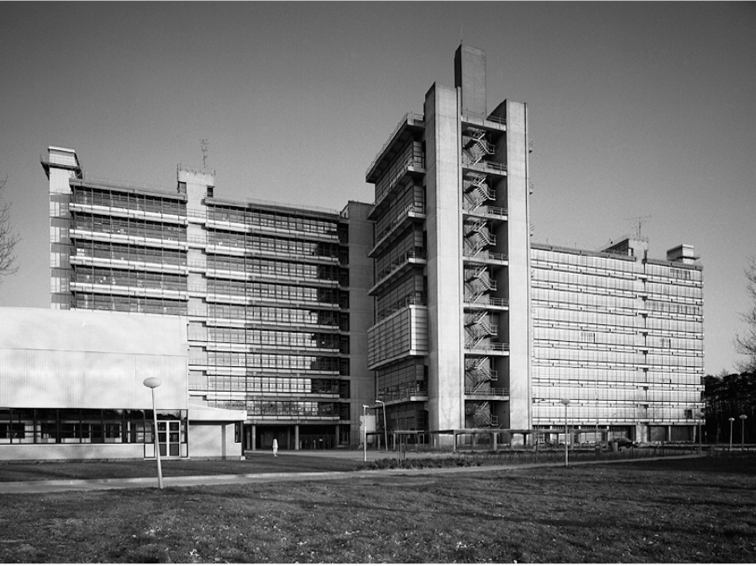
| Demonstrator 4: Hogekamp, NL, responsible partner DEMO. This demonstrator is the deep retrofit, redesign and transformation of an abandoned university building, originally erected in 1965, into a student hostel and hotel building. The field demonstration activities will focus on the testing and inspection of new facade panels, parts of a new MEP system and a mobile inspection tool for post-renovation condition assessment.
|
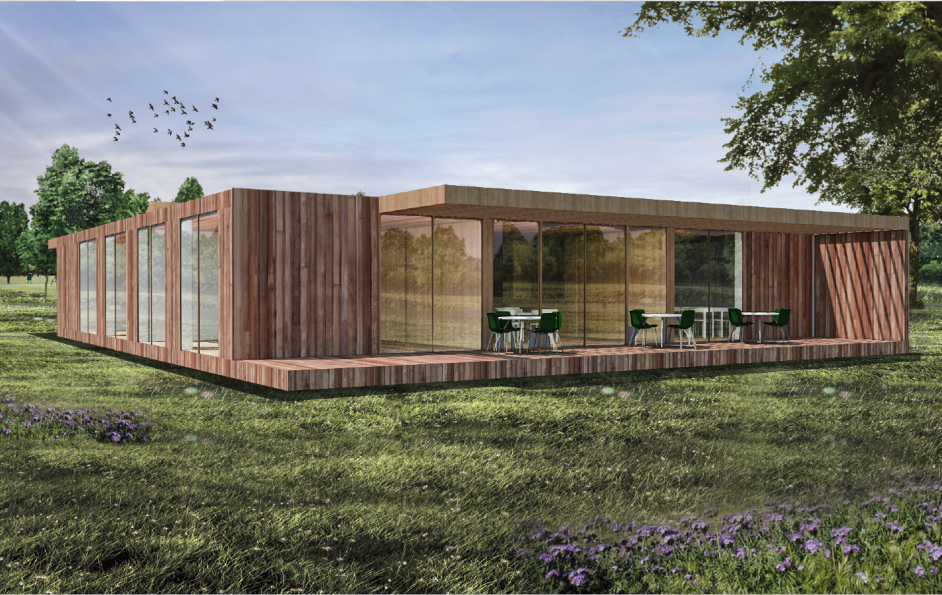
| Demonstrator 5: The Green Village, NL, responsible partner SBR. Demonstrator 5 will be erected on the campus of the University of Delft. The new prefab office building is based on wooden modules. The field demonstration activities will focus on the positioning of the building elements with the help of QR codes, the testing and inspection of air tightness measurement on site and digital VR instruction including dimensions and tolerances facilitating assembly on site.
|
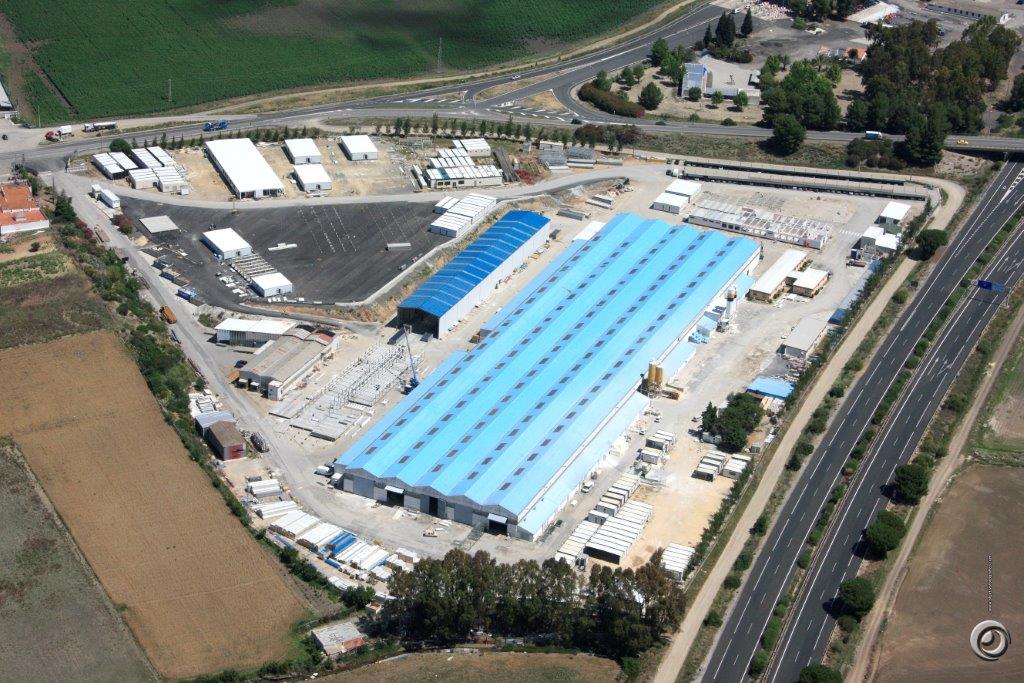
| Demonstrator 6: Dragados Factory, E, responsible partner Dragados. Demonstrator 6 is containing industrial buildings and workshops where panel and modules are prefabricated, pre-assembled and pre-commissioned since 1974. The most critical processes at factory level affecting the final quality of the final building are the roof and facade panel fabrication and preassembly, the testing of the joints, the installation of the MEP/HVAC components on the modules and the pre-assembly of the modules. The quality/energy performance will be checked, too.
|
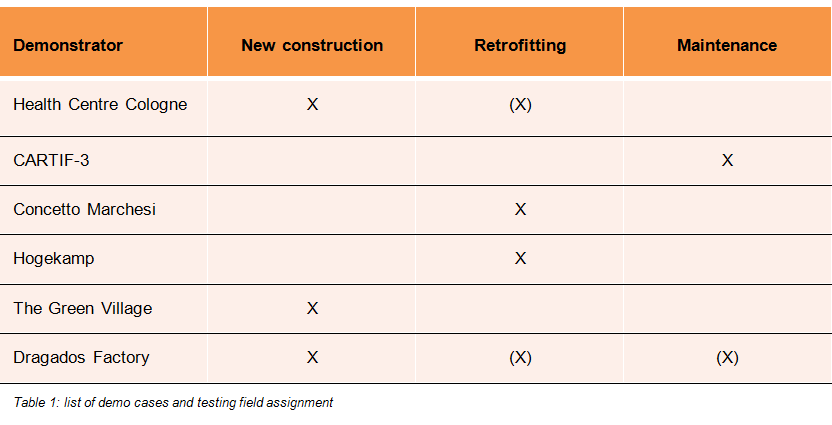
The Health Centre Cologne is representing a hybrid demonstrator as it is a new construction project and sort of a retrofitting project at the same time. Typical retrofitting projects are Concetto Marchesi and Hogekamp. The Green Village is a new construction while CARTF-3 is focusing on maintenance issues. The Dragados Factory is giving impact on all testing fields, representing panels that might be used for new construction and retrofitting at the same time and additionally promoting an easy-to-handle maintenance already foreseen at design and prefab stage.
Within each of the 6 demonstrators three critical construction topics have been identified. The INSITER toolset should be tested and validated regarding the issues that are defined in this deliverable. To prepare the INSITER toolset for the aimed use cases it is essential to describe the proposed processes in detail. Therefore, storyboards for each demonstrator have been created and concrete demo cases have been identified. The storyboards involve all stakeholders and their characteristic demands in order to assure the interaction related to quality issues. The objective of the storyboards is to follow and describe the regular workflow on site and demonstrate the intervention for quality assuring by the INSITER methodology and toolset at different phases of the project. The storyboards are describing actions related to the INSITER toolset in the given construction situations. This will enable the INSITER project to adjust the required software functionalities and to prepare the BIM models as well as the IT environment in a most suitable way. The demo cases are defined and used as samples in order to validate the INSITER tools and methodologies. Related to the quality assuring self-inspection and self-instruction methodology supported by the INSITER tool the testing needs and processes on sites are prepared and pre-defined.
The validation will be done on site and is prepared in D5.3. It will be further elaborated in D5.4 Field validation report and recommendations. The tests on site will be described in detail in D5.5 Field demonstration set-up, the results of the site testing will be reported in D5.6 Field demonstration report and finally analysed in D5.7 Cross-case analysis and benchmarking.
Download